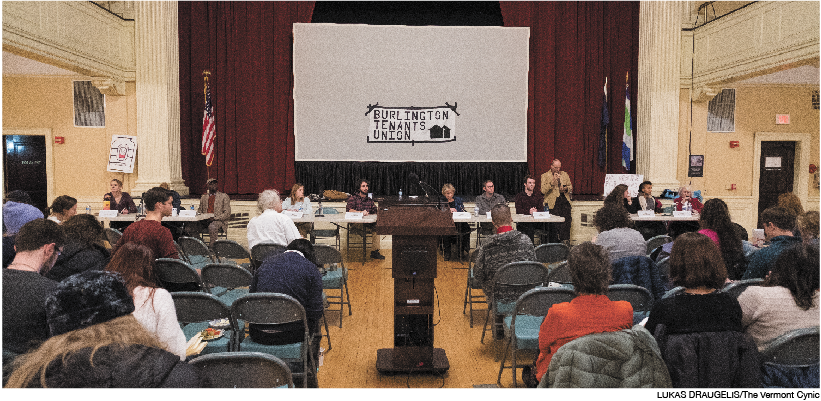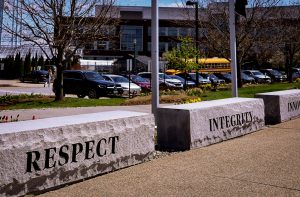Burlington City Council ward debate: We need clear information
February 27, 2020
On Feb. 21, I went to the City Council candidate debate hosted by the Burlington Tenants Union to get a better sense of what to expect from those running.
What I found out instead was that Burlington is apparently a very progressive, but not very organized city.
In order to get the best perspective on the candidates that represent us, we must pay attention to small differences between candidates and hold them accountable for their promises. And we can’t do that without easily accessible information about who they are and what they do.
At the start of the debate, the candidates from each ward said how much they cared about the issue of renting and proposed what they think should be done.
Some solutions included expanding legal aid available to tenants, increasing tenant organization and providing additional information for renters about their rights.
The Q&A session brought up a lot of interesting questions about how candidates would solve issues such as homelessness, police working with ICE and how UVM fits into the picture.
I am not very informed about Burlington politics and did not know a lot of the key issues or candidates going into this, but was happy I went.
Despite living here for almost three years, I have rarely been exposed to problems that the rest of the city faces.
In addition, I don’t think our current resources on the City of Burlington’s website do much to address the lack of accessible information.
Wards are relatively small and often only have one candidate running, which makes it hard to care about the election.
Of the eight total wards, Ward 3, 6 and 7 have only a single candidate for councilor.
At the debate, only Wards 1 and 8, which made up half the panel, had all their candidates show up.
Only 20% of all eligible voters voted in 2019, with that amount increasing to 32% in the 2018 mayoral election, according to the City of Burlington’s website.
Small races don’t get the attention that makes voters want to know their local issues and what exactly their candidate will do about it.
If you want to learn more, finding the right information isn’t exactly easy either. If you want to see who is running for councilor, you have to go to the election page and look at the sample ballot.
We often like to claim how progressive we are; all of the candidates supported enforced weatherization of homes and protecting undocumented residents from ICE, policies often proposed by those on the left.
All of the candidates except for Ali Dieng of Ward 7 supported providing more public bathrooms downtown.
However, with little competition or concern about politics, it falls to a select few residents and organizations to actually monitor what the city does and if candidates follow through with their promises.
It is impossible to learn any real information from a single debate, especially not when it comes to differentiating fairly progressive candidates.
The best way to learn more about candidates is to attend more than one debate.







